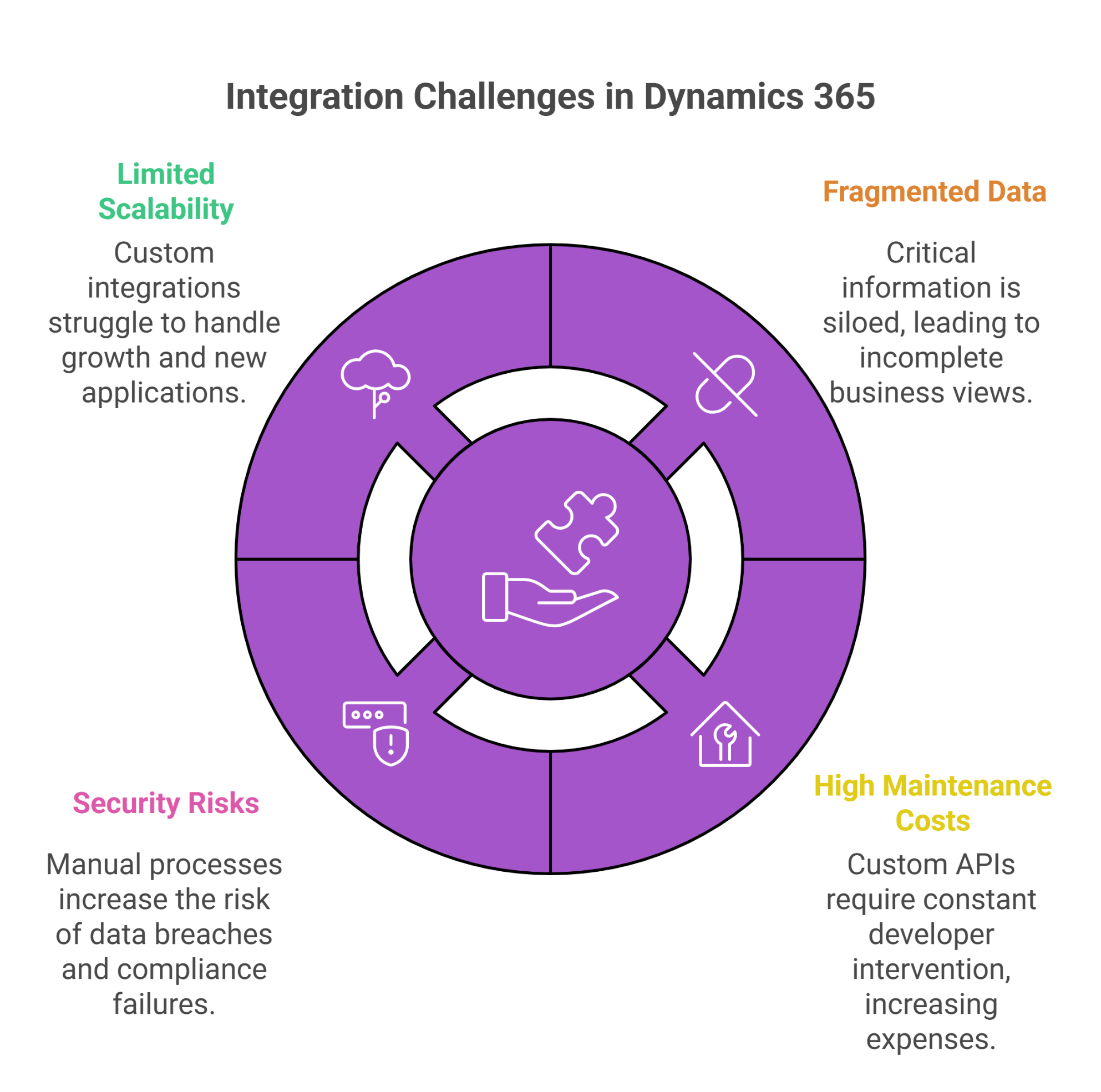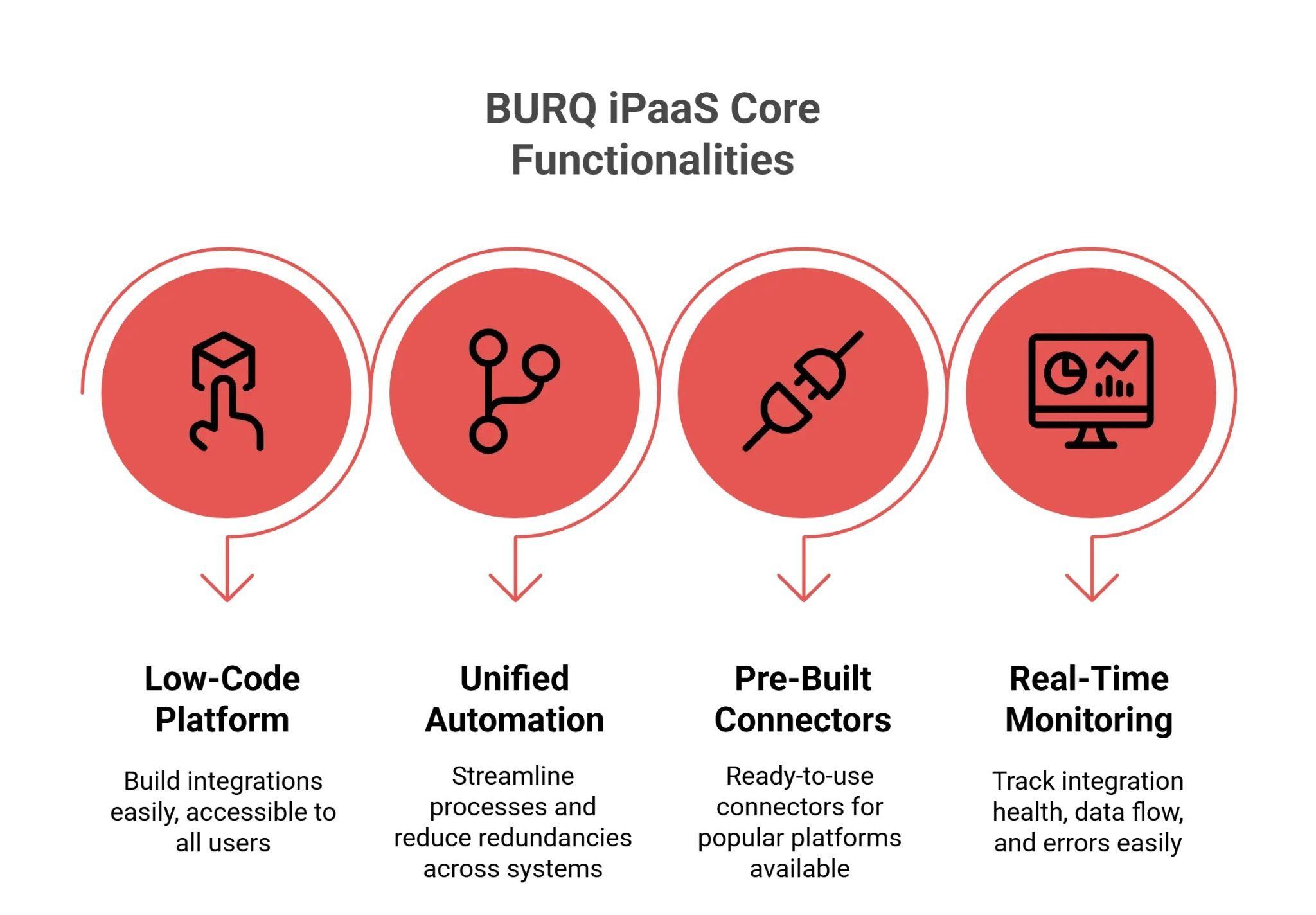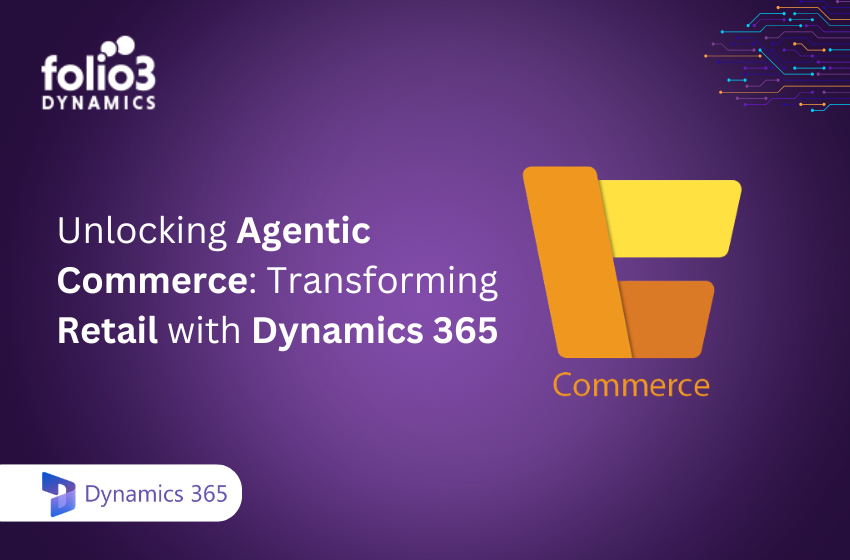Business agility is the fundamental competence to adapt rapidly and successfully to continuous, uncontrollable changes, from volatile supply chain events to shifting customer expectations. This requires streamlining every operational area and empowering your teams to constantly optimize their workflows, moving beyond static processes.
If your organization utilizes Microsoft Dynamics 365 (D365) as its central ERP and CRM suite, you possess a powerful foundation. Yet, that power is often neutralized when critical external applications remain disconnected. Are you experiencing sales friction because crucial data is trapped in an external e-commerce platform? Do manual transfers between D365 Finance and external systems consume valuable time? This fragmentation comes at a high cost: up to 20–30% of enterprise revenue is lost annually due to data inefficiencies caused by silos.
The solution to overcoming these barriers is strategic connection. By adopting an Integration Platform as a Service (iPaaS), you can unify your entire technological ecosystem and establish a single, reliable source of truth. This blog will define the challenges facing D365 users and demonstrate precisely how iPaaS helps Dynamics 365 integration unlock competitive, unified data flows.
The Hidden Challenge: Integration Gaps in the Dynamics 365 Ecosystem
Your Dynamics 365 environment is undoubtedly powerful, but it rarely exists in isolation. It needs to communicate with specialized front-end platforms, HR applications, industry-specific tools, and often dozens of other systems. This necessity creates integration gaps that severely erode your operational efficiency and speed. Some of the most common pain points faced by D365 users are:
- Fragmented Data: Critical information, whether it’s customer orders (CRM), inventory levels (ERP), or vital analytics data, is frequently siloed. This forces your teams to operate using incomplete or outdated views of the entire business landscape.
- High Maintenance Cost of Custom APIs: While bespoke APIs can solve immediate problems, they create long-term technical debt. Maintenance, security updates, and ensuring compatibility with D365’s continuous updates require constant developer intervention. This overhead can cost between $6,000 and $60,000+ per year for monitoring and support alone.
- Security and Compliance Risks: Relying on manual processes or outdated point-to-point connections increases the risk of data breaches and compliance failures. Managing security across dozens of custom links is complex and highly time-consuming.
- Limited Scalability: Custom integrations struggle to keep pace when you need to add new applications, enter a new market, or handle seasonal sales spikes. This friction undermines your business’s ability to scale operations quickly.
What Is iPaaS and Why It Matters for Dynamics 365 Integration
Integration Platform as a Service (iPaaS) is a cloud-based solution that enables your organization to connect, integrate, and manage data and processes across different applications, systems, and databases—all without requiring complex, custom coding or manual work.9 iPaaS functions as an intelligent middleware layer that precisely moves and maps data from one application to another based on your predefined business rules.4
Core Capabilities of Modern iPaaS Dynamics 365 Solutions
A robust iPaaS designed for enterprise use provides a unified, low-code environment that drastically reduces custom development effort, accelerates deployment speed, and ultimately improves agility. This capability is fueling the iPaaS market’s explosive growth, which is projected to increase from $3.7 billion (2021) to $13.9 billion by 2026, a staggering 270% increase in just five years.
Key capabilities that power successful iPaaS Dynamics 365 integration include:
- Pre-built Connectors: An extensive library of out-of-the-box connectors for popular applications, drastically reducing setup time and the need for custom coding.
- Low-Code Workflow Design: This feature empowers non-technical teams to configure complex automation and integration tasks using intuitive, graphical interfaces like simple drag-and-drop tools.
- Real-Time Data Synchronization: Enabling immediate data exchange between systems like D365 and external apps to ensure consistency and accuracy across the enterprise.
- Centralized Monitoring and Governance: Providing comprehensive dashboards and audit logs to track the health of all integrations and quickly alert you to any anomalies or failures that require attention.
These capabilities transform the complexity of microsoft dynamics 365 integration services into a standardized, manageable, and highly reliable service.
Unified Integrations with iPaaS: The Key to Business Agility
When you successfully integrate Dynamics 365 with other systems using iPaaS, you are doing more than connecting software; you are fundamentally enhancing your business’s operating model. The benefits of integrating Dynamics 365 using iPaaS are immediately visible across multiple business functions, translating integration from a purely technical necessity into a core strategic enabler. This is how integration fuels agility:
- Faster Decision-Making: With unified, real-time data flowing seamlessly into D365, your leadership team gains an immediate, accurate view of the entire business, from sales pipelines to current inventory. This eliminates the delay associated with manual reports or reconciliation, allowing for swift, data-driven decisions.
- Improved Customer Experiences:Connecting D365 Sales and Customer Service with marketing and field service platforms creates smooth, and connected customer journeys. When a service agent in D365 can instantly view a customer’s full history (including external e-commerce purchases), they can offer faster, more personalized, and effective support.
- Reduced Operational Bottlenecks: Leveraging iPaaS to automate Dynamics 365 workflows with iPaaS streamlines multi-step processes like “lead-to-cash.” This focus on end-to-end automation reduces dependency on your IT department and frees operational teams from repetitive, manual tasks.
Hence, integration is no longer a purely technical IT function. It is a strategic mechanism that delivers the speed, reliability, and connected insights essential for true innovation. iPaaS ensures that every dollar you invest in D365 is maximized by effortlessly connecting Dynamics 365 integration with other apps.
Introducing BURQ iPaaS: Purpose-Built for Dynamics 365 Integration
While several leading iPaaS platforms exist, few are optimized and purpose-built for the unique architectural and data needs of the Microsoft ecosystem. When choosing the best iPaaS for Dynamics 365, domain expertise matters immensely for success.
BURQ iPaaS is developed by Folio3, a Certified Gold Microsoft Dynamics Partner. This status is crucial because it signifies deep domain knowledge, extensive experience, and validated expertise in the entire D365 suite. This strategic partnership minimizes the risks associated with complex dynamics 365 integration and ensures that the platform is architecturally sound and future-proof.
BURQ iPaaS: The Secure, AI-Infused Enterprise Platform
BURQ is a low-code, cloud-based integration platform engineered to seamlessly connect D365 with other enterprise and cloud systems. It simplifies the flow of data across every corner of your operations, whether that involves ERP, CRM, supply chain, or analytics. Some of the capabilities of Burq iPaaS are listed below:
- Cost-Effective Scaling: Unlike many competitors that charge based on transaction volume, BURQ utilizes a connection/instance-based pricing model. This is one of the crucial benefits of iPaaS for Dynamics 365 users, as it allows your business to manage limitless transactions without incurring additional payments during peak periods, providing predictable cost management for high-growth scenarios.
- AI-Infused Capabilities: BURQ is designed as an AI-Infused Enterprise Integration Platform. This intelligence accelerates time-to-value through features like AI-Driven Mapping, which automates complex data transformations, and Predictive Error Resolution, which uses historical data to forecast and fix potential failures before they impact your D365 processes.
- Low-Code/No-Code Platform: Build and manage integrations without heavy development effort, making it accessible to both technical and non-technical users.
- Extensive Pre-built Connectors: The platform offers robust pre-built connectors for key commerce and enterprise systems, making it simple to understand how to connect Dynamics 365 to cloud apps like Shopify, Salesforce, and Amazon, as well as specialized custom applications.
Best Practices for Successful iPaaS Implementation
Choosing the right platform is only half the battle. Success with your Dynamics 365 iPaaS solutions requires a structured, governed approach that focuses rigorously on business outcomes.
Define Business Outcomes First
Before you start connecting anything, you must clearly define your integration goals. Focus on the business benefits you seek, not just the technical links. What do you aim to achieve? Fewer data entry errors? Faster cash flow? Define Key Performance Indicators (KPIs) against which success will be measured.
Map Critical Data Flows
Your data is your most valuable asset. Conduct a thorough data audit, creating an inventory of all data sources and documenting the precise, system-to-system mappings. This is crucial for microsoft dynamics 365 data integration, especially when dealing with custom fields in D365; you must ensure these custom fields are accurately mapped within the iPaaS platform to maintain data integrity. Prepare proactively for how you will handle data exceptions and errors.
Engage Stakeholders From End-to-End
Integration is inherently a cross-functional effort. Promote cross-department collaboration, engaging stakeholders from IT, finance, sales, and operations early in the process. They must participate in gathering requirements and, critically, in the User Acceptance Testing (UAT) phase to confirm the solution meets their real-world operational needs. Tailor your communication to address the specific concerns of each group.
Prioritize Security and Compliance
A robust iPaaS vendor centralizes security management. Look for a platform that employs strong encryption to protect your sensitive D365 data both while it is in transit and at rest. Ensure the vendor adheres to best practices and maintains certifications like ISO 27001 and GDPR, and that they provide detailed audit logs to track and monitor access.
The Future of Connected Enterprises
The long-term benefits of iPaaS for Dynamics 365 environments are tied directly to the rise of intelligent, autonomous operations. The iPaaS layer is rapidly evolving from a simple connectivity tool into the definitive AI data pipeline catalyst.
iPaaS: The Foundation for AI and Predictive Insights
Dynamics 365 is increasingly becoming the foundation for Generative AI and Machine Learning (ML) models. However, AI models are only as good as the data they consume. iPaaS ensures that D365 can support these initiatives by guaranteeing access to clean, unified, and real-time data pipelines.
When you can unify data across multiple systems using iPaaS, your forecasting models gain comprehensive, cross-functional insights. For example, a sales forecast can pull real-time customer interactions from D365 CRM, current inventory from D365 ERP, and external data from integrated cloud apps simultaneously. This clean, multi-source data is non-negotiable for competitive predictive decision-making.
Autonomous Integration and Agentic AI
The future of connectivity is increasingly autonomous. iPaaS platforms are embedding intelligence, accelerating the move toward Agentic AI, software agents that can reason, act, and deliver business outcomes autonomously across complex IT landscapes. The inclusion of AI in integration (AI iPaaS) provides next-generation efficiency:
- Smart Data Cleansing: Applying machine learning to automatically detect and flag dirty data for correction.
- Automated Workflow Optimization: Continuously analyzing performance metrics to reconfigure integration processes for peak efficiency without manual intervention.
By adopting a robust platform, you are not just solving today’s integration challenges; you are future-proofing your business and ensuring that your Dynamics 365 integration with other apps is ready for the next wave of intelligent automation.
Final Thoughts-Turning D365 Integration into a Competitive Edge!
Achieving market relevance today hinges on business agility. When you leverage the comprehensive power of Microsoft Dynamics 365, your ability to rapidly connect, synchronize, and automate data flows directly dictates your speed, operational efficiency, and overall profitability. Relying on fragmented systems creates compounding costs that ambitious enterprises simply cannot sustain. By strategically embracing iPaaS Dynamics 365 integration, you transition away from unpredictable custom development toward proactive, scalable, and secure connectivity.
BURQ iPaaS by Folio3 presents a uniquely differentiated solution. Its connection-based pricing model and AI-infused capabilities are precisely tailored to maximize the benefits of iPaaS for Dynamics 365 users. Explore how BURQ iPaaS by Folio3, a Certified Gold Microsoft Dynamics Partner, can simplify your Dynamics 365 integration challenges and help your business move with agility.
To learn more about Folio3’s expertise and Dynamics 365 services, visit dynamics.folio3.com. Learn more and explore Burq iPaaS platform → burq.io
FAQs
For an organisation with limited developer resources, is adopting an iPaaS realistic when integrating Dynamics 365 with many external apps?
Yes, iPaaS solutions are built for low-code environments, offering pre-built connectors and workflow tools that minimize the need for custom coding. Platforms like BURQ iPaaS make integration easier by reducing dependency on developers.
How do I decide whether to use native Dynamics 365 connectors or go for a full iPaaS when integrating external systems?
If you only connect Microsoft tools, native connectors may work. But for integrating non-Microsoft apps like Shopify, Salesforce, or IoT systems, a full iPaaS offers greater flexibility, scalability, and centralized management.
What hidden costs should I consider when implementing iPaaS for Dynamics 365 integrations?
Beyond license fees, factor in expenses for data mapping, monitoring, and scaling. Opting for a connection-based model like BURQ iPaaS helps avoid unpredictable per-transaction charges, ensuring cost stability as your data volume grows.
How can I ensure data security and compliance when integrating Dynamics 365 via iPaaS?
Look for iPaaS platforms offering data encryption, audit logs, and compliance with global standards such as ISO 27001 and GDPR. Establishing clear governance and role-based access controls is also essential.
What are common pitfalls when rolling out Dynamics 365 integrations with an iPaaS?
Common mistakes include poor stakeholder involvement, unclear data mapping (especially custom D365 fields), and lack of proper testing or monitoring. Addressing these early ensures smoother implementation and faster ROI.
When should I move from point-to-point APIs to an enterprise iPaaS for my Dynamics 365 ecosystem?
If maintaining multiple APIs is slowing you down or limiting scalability, it’s time to upgrade. An enterprise-grade platform like BURQ iPaaS centralizes integrations, reduces technical debt, and prepares your systems for future growth.




